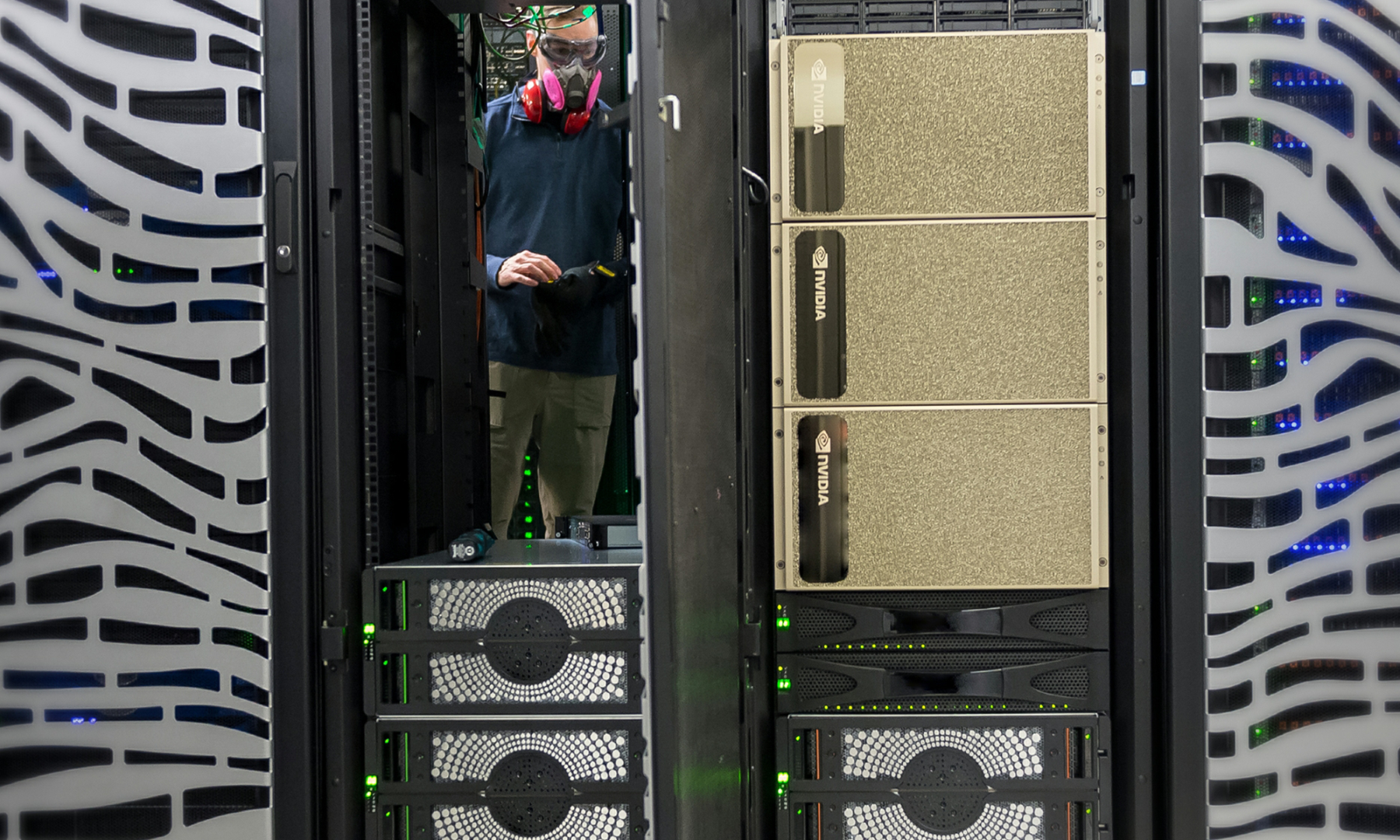The technology sector has helped lead the market higher over the past decade, and with new technologies such as artificial intelligence (AI) and autonomous driving continuing to emerge, there is every reason to believe it can do the same over the next decade.
Let's look at three leading tech companies to buy this year.

Image source: Getty Images.
1. Nvidia
Graphics processing units (GPUs) maker Nvidia (NVDA +2.95%) has established itself as the leading semiconductor company in the world. The strength of GPUs lies in their parallel processing capabilities, which allow them to perform many calculations at the same time. This capability makes these powerful chips ideal for running AI workloads in the data center.

NASDAQ: NVDA
Key Data Points
The real secret to Nvidia's successes, though, is its CUDA software program. Created to expand the market for GPUs beyond their original intent of speeding up graphics rendering in video games, Nvidia aggressively pushed the software platform into universities and research labs in its early days, which helped make it the platform upon which developers learned to program GPUs for various tasks.
In the years since, the company has built a collection of tools and libraries that help improve the performance of its GPU for use in running AI workloads. This has helped give the company a dominant market share in the GPU space of more than 80%.
As the AI infrastructure market continues to grow, Nvidia continues to be the biggest beneficiary. However, that's not its only growth market, and the company also sees a big future opportunity in the automobile and autonomous driving sector. After all, autonomous vehicles need to perform quick calculations, which is the strength of GPUs, so they don't crash.
Since Nvidia doesn't have a recurring revenue stream, any slowdown in its end markets is a risk, but right now these markets still appear to be in the early days of their growth cycles.
2. Alphabet
Alphabet (GOOGL 0.82%) (GOOG 0.84%) is certainly not without its risks, as some investors fret over AI disrupting its search business, while at the same time, it faces legal remedies from the U.S. government after losing an antitrust trial. However, the company has a collection of very attractive businesses and investors have largely ignored the advantages in search the company has.

NASDAQ: GOOGL
Key Data Points
Alphabet is about much more than Google search. Its YouTube business is not only the most-watched streaming platform, but it is also one of the largest digital advertising platforms in the world.
Meanwhile, its cloud computing unit, Google Cloud, is Alphabet's fastest-growing business, as it helps customers build out and run AI models and apps on its platform. Also not to be overlooked is its robotaxi business, Waymo, which has a first-mover advantage in the U.S. and is expanding rapidly.
That said, Google is still Alphabet's bread and butter, but it's not time to write this dominant search engine off just yet. Google has a large distribution and ad network advantage that should not be overlooked. Its distribution advantage comes from its popular Android smartphone operating system and Chrome browser, which use its Google search engine as a default.
Meanwhile, it has a revenue-sharing agreement with Apple and browser companies like Opera to run their search queries, as well. In addition, it has spent decades building one of the largest ad markets on the planet, with an ability to serve not only national advertisers, but also local businesses.
Alphabet also knows how to monetize search better than any company, and as the world moves toward AI search and chatbots, it's focused on profiting from queries that have commercial intent. That's why when it recently launched its new AI search mode, it included several commerce-focused features aimed at enhancing monetization, such as "Shop by AI," which allows users to find products simply by describing them, virtually try on clothes using a photo, and even track prices.
With unmatched distribution, a massive ad network, and a focus on commerce monetization, Alphabet is well situated to be an AI search winner.
3. Salesforce
Salesforce (CRM 1.65%) has long been the leader in customer relationship management software, and now it's setting its sights on becoming a leader in AI agents through its new Agentforce platform.
The company's core value proposition has always been about unifying customer data, and it has expanded this concept into the data center with its Data Cloud offering. Through acquisitions, it's also established a leadership position in employee and customer-facing apps, such as Slack and Tableau. This type of ecosystem is an ideal environment for AI agents to interact with this data and use it to automatically perform tasks.

NYSE: CRM
Key Data Points
Agentforce includes pre-built AI agents that can help businesses streamline tasks, as well as low-code and no-code tools that let customers design their own custom AI agents with little technical expertise. It has also established an Agentforce marketplace with more than 200 partners to offer more templates and broaden use cases. Thus far, Agentforce has seen solid momentum, with it already having more than 4,000 paying customers since its October launch and many more in pilots.
Salesforce is looking to lead a digital labor revolution. It plans to accomplish this through its ADAM framework that combines agents, data, apps, and metadata into one platform. It recently introduced a new consumption-based model that better aligns agent costs with business outcomes to help improve customer satisfaction and increase adoption.
Agentic AI is a competitive space, but Salesforce looks like it has the platform to be a winner.








